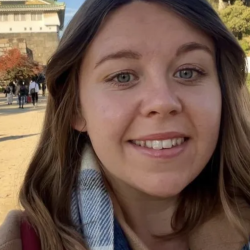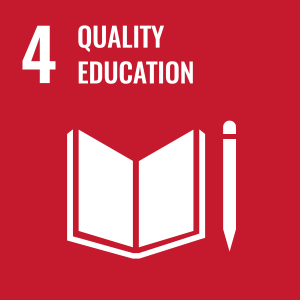
Kassie Headon
Academic and research departments
Surrey Institute for People-Centred Artificial Intelligence (PAI), School of Computer Science and Electronic Engineering.About
My research project
How can playful, immersive experiences about potential social futures with AI technologies help people improve critical AI literacy and engage with ethical and societal issues?My research explores how to make Artificial Intelligence more tangible and accessible, with the aim of empowering people to critically engage with its societal and ethical implications. By designing immersive, story-driven experiences, such as games set in plausible near-future worlds, I will give participants playful experiences that enable people to reflect on how AI might shape their lives, question whose interests it serves, and imagine alternative, more inclusive technological futures.
Supervisors
My research explores how to make Artificial Intelligence more tangible and accessible, with the aim of empowering people to critically engage with its societal and ethical implications. By designing immersive, story-driven experiences, such as games set in plausible near-future worlds, I will give participants playful experiences that enable people to reflect on how AI might shape their lives, question whose interests it serves, and imagine alternative, more inclusive technological futures.
Sustainable development goals
My research interests are related to the following:


Publications
Q: Why is it important that people with learning disabilities tell their stories? A: I think it's to let other people know what's happened to them and make it aware of people so that it doesn't happen. People doesn't go around hurting other people, it's not fair. So I think if they write their story it makes people aware, because years ago it wasn't aware of people with learning disability because they were put away. So now it's time for people with learning disability to write their story and to let other people know. (Cooper 2008 online). Mabel Cooper, former resident St Lawrence's Hospital, self-advocate, broadcaster and founder member of the Open University's Social History of Learning Disability Group. 1 This book's title – Communities, archives and new collaborative practices – raises the question of who or what is collaborating. The reading of the title most immediately available might be that the collaboration is between communities and those that work in archives. Yet we want to focus on another type of collaboration here, one which is equally crucial in developing new collaborative practices for archives. In a recent action research project to develop an Inclusive Archive of Learning Disability History 2 it became clear that in seeking to produce an archive we needed to conceive of collaboration not only in terms of people but also in terms of a collaboration between different political theories. In developing the Inclusive Archive we recognised we needed to seek a collaborative relationship between the political ideas derived from public political logics – public service, public sphere, 'on behalf of the public' and for posterity – and those that derive from relational and personal-centred politics. While there was constant debate in the team, with some of us favouring one set of political logic and some the other, we realized that for an archive to be an archive, and for it to be an inclusive one, we needed to develop an approach to archival practice which held both the public and the relational political traditions in dialogue. Both political traditions have a history of being very effectively expressed in the learning disability self-advocacy movement as speaking up and being heard and of arguing for services to start with the individual by being more 'person-centered' (Brownlee et al. 2017). The task of our archive was to explore fruitful combinations and collaborations between the two political traditions.
The Living Archive of Learning Disability History is being developed by an inclusive team of researchers both with and without learning disabilities. We argue the archive is important in making publicly visible the lives of people with learning disabilities. Yet - drawing on thinking that came out of our collaborative workshops - we also identify alternative imperatives, that you might want to have control over how you share your personal memories and stories, with whom, when you share them and for how long. We show how we are responding to these different ideas in the design of the Living Archive in order to create pathways between two traditions that have emerged through self-advocacy: 'speaking out in public' and 'being person-centred'. We outline our research on consent processes to ensure that our archive builds capacity for as many people as possible to consent while also offering a legally compliant 'Best Interests' process in line with the requirements of the Mental Capacity Act, England and Wales (2005). We argue that deploying and actively navigating between the different political logics of 'speaking out in public' and 'being person-centred' offers a way forward for ongoing debates concerning community engagement in archives, museums and heritage.